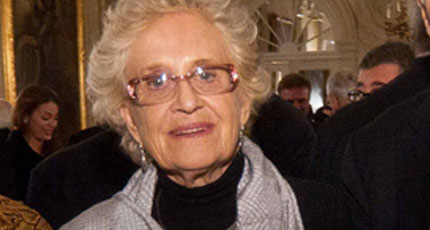News
- María José López Pourailly
Ida Holz: “RedCLARA has the vision and the will to join efforts in the field of R&D in order to move forward towards a greater development of Latin American countries”
Check out the voice of the Executive Director of the Uruguayan Academic Network, RAU, and her vision about RedCLARA and collaboration. Read this and other interviews in the book “RedCLARA: Name, voice and instrument of collaboration in Latin America”.

What comes to your mind when you hear a researcher talking about collaboration?
I think of RedCLARA as a tool to collaborate with other researchers in the region or with researchers in other parts of the world.
Unfortunately, there are not many researchers who talk about collaboration and I believe a strong dissemination work is required for them to learn about the possibilities for strengthening their work by using networks to get connected, meet and cooperate with peers anywhere in the globe.
What would you say is the most important aspect of research and education networks?
Communication networks for research and education really open up a great range of possibilities for creating new ways to face education plans at all levels.
In the same way, researchers can collaborate with their peers and, in many cases, remotely use tools they do not have to move forward in their work.
How would you describe the role of RedCLARA both at a regional and global level?
I think RedCLARA is a body which has had and still has the vision and the will to join efforts in the field of R+D in order to move forward towards a greater development of Latin American countries, creating the suitable communication infrastructure for those purposes.
What has been the key important aspect of the ALICE2 project for your network?
First, the European Commission’s project called ALICE was the initiative that made it possible, through its financial contribution and logistic support, to reach a long time dream for many in Latin America, which consisted in creating an advanced communications network in the region (RedCLARA) to benefit the academia and research and, therefore, our countries’ development.
The renewal of the support from the European Commission through the ALICE2 project created the conditions to move forward and consolidate the planned infrastructure by acquiring and installing own optical fibre, either owned or under IRU modality, which goes through and penetrates most of the countries, which enables us to foresee with greater certainty RedCLARA’s continuity and permanence and, therefore, the collaboration between the countries in the region.
This project has created a highly important boost for the development of the Uruguayan Academic Network.
How important is for RAU the collaboration with other national and regional networks and how do you collaborate globally?
Uruguay is the country with the smallest population in Latin America, although it has a long tradition of social awareness and the education of its population at all levels. All public education, from pre-school to universities, has been secular and free of charge for more than a century and it is compulsory at both primary and secondary levels.
This has turned it into a country with a great cultural tradition and high educational level. However, its scarce population makes researchers need to communicate and collaborate with researchers in the region and at a global level.
In this sense, RAU has participated since the beginning in the creation and consolidation of the Latin American bodies related to internet development and, among these with RedCLARA, which provides the means to facilitate the cooperation required.
If RedCLARA did not exist, what would the science, research and innovation scenario in your country be like?
It is difficult to think what it would be like, considering that we are close to celebrating the tenth anniversary of CLARA’s creation, ten years that have completely changed technology and communications.
I think we would have worked in more isolation and therefore with less benefits for the development of education and research.
However, I think even today a big part of our educators and researchers have not become fully aware of the extraordinary tool implemented to benefit their work and a lot of dissemination and work is required for that to happen.
Could you describe your view of research and education networks in the future?
That is like looking through a crystal ball. Progress in technology is very vertiginous and predicting the future is an adventure.
Undoubtedly, we are walking towards new forms of education and research in which technological means and communications will enable a large cooperation between organisations and countries at all levels of human activity and thus a big progress in all areas of knowledge.
According to your point of view, what should be the role of RedCLARA over the next five years?
To bring Latin American countries together with a high-speed network and to work hard in encouraging collaboration by providing initiatives that add content and support projects which show the benefits of communication and union with each other.





